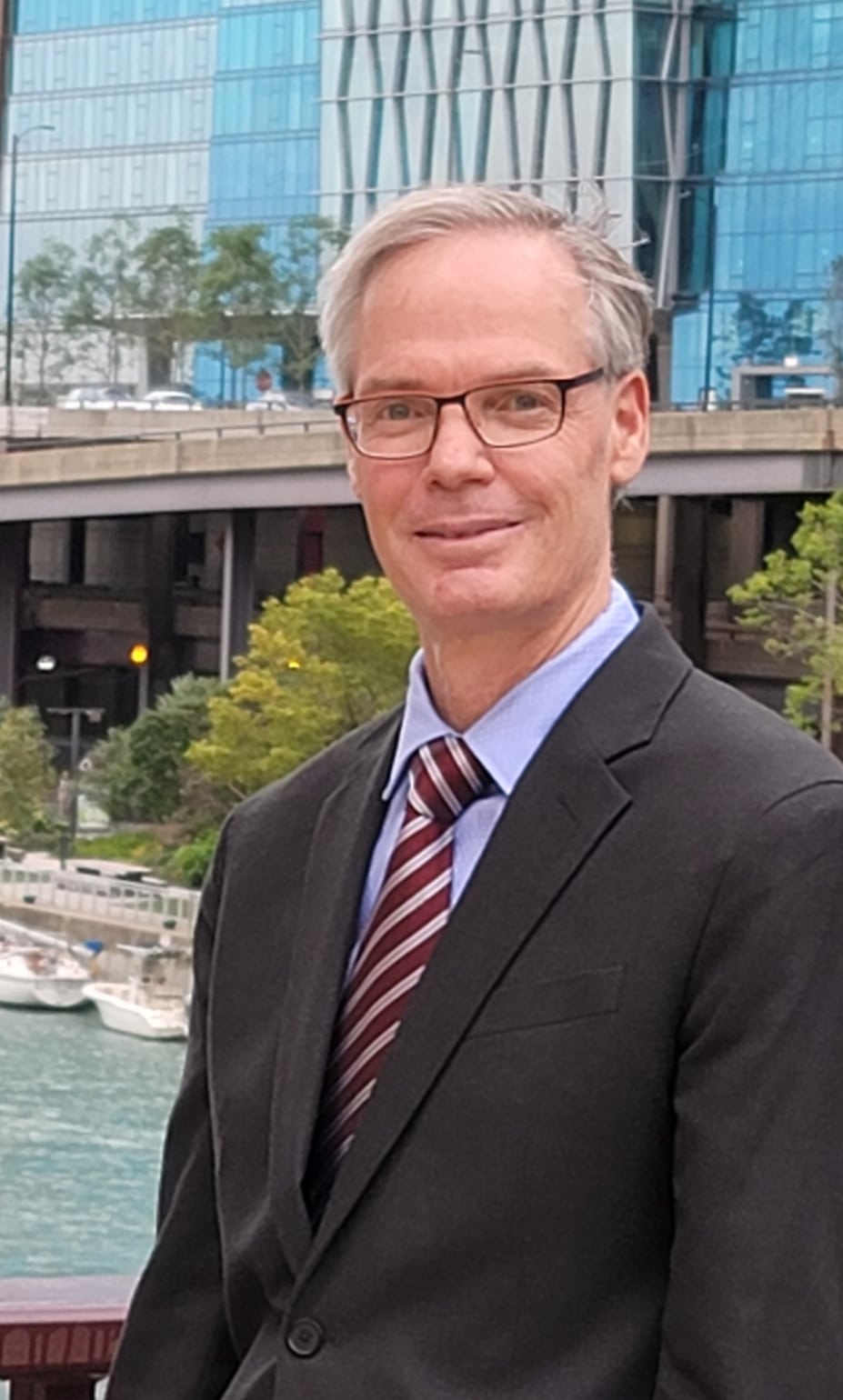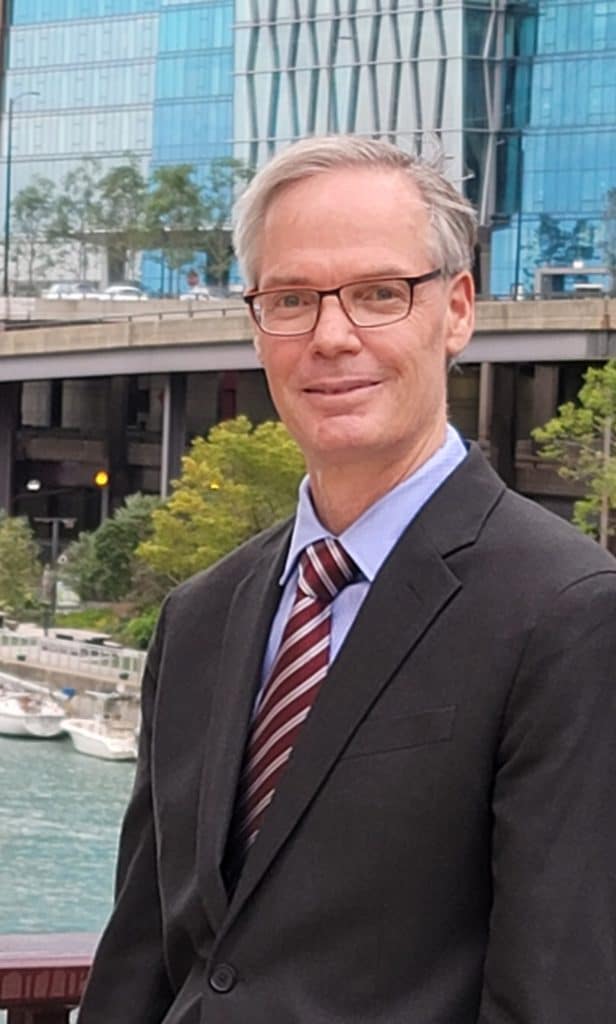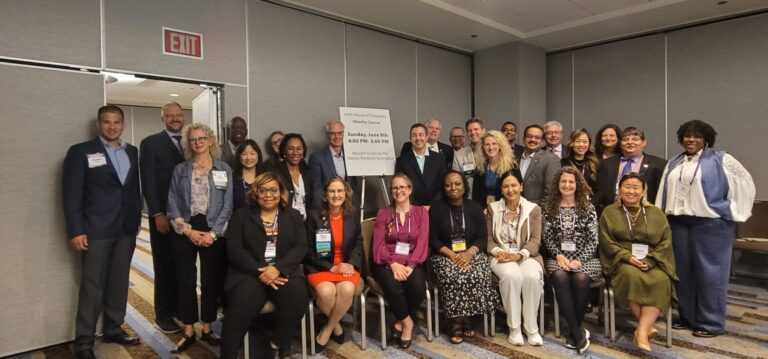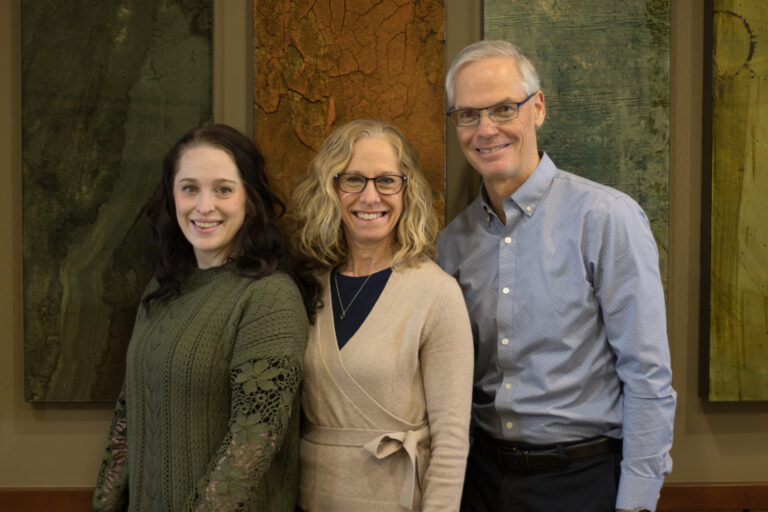
Dr. Lazarus Sworn in as the President of the Obesity Medicine Association

Dr. Lazarus became the President of the Obesity Medicine Association (OMA) on September 24th, 2021. He has been a member for nearly 20 years, and served on the board for nearly a decade. In his role with the OMA, he has also represented them as a delegate in the American Medical Association (AMA). He has advocated for, written, and helped pass numerous policies at the AMA including one in 2013 which led to the recognition of obesity as a disease.
The OMA trains healthcare providers to prevent, diagnose and treat obesity as a medical problem. They are the largest organization of clinicians dedicated to the treatment of obesity, now with over 3,600 members. They also help train doctors to become certified in the field of Obesity Medicine. Dr. Lazarus has chaired many committees, given dozens of lectures on topics ranging from nutrition to the use of weight loss medications and even on weight bias, and represented the organization nationally.
He is excited to help teach more clinicians to approach obesity as a medical issue, trained with the proper tools to really help make a difference.
Below, please enjoy the video of his acceptance speech (7 minutes), or the text of the speech is copied below the video.
Acceptance Speech
The music you heard to kick this off is a song titled, “Fanfare for the common healthcare provider.” (If you’d like to hear the music that was played to kick this off, click here). I spent the pandemic studying music theory, composition and production. I wrote this piece to honor all of the people in this room, and across the country who are the healthcare workers responsible for trying to lessen the incredible toll COVID-19 has taken on humanity.
It is a privilege and an honor for me to represent the Obesity Medicine Association as your president. When I joined the OMA way back in 2003, never in a million years did I think someday I’d be the guy giving a speech.
But here I am. I’ve stuck with it all these years, because I believe that the OMA is making a difference. The OMA is slowly making the world a better place.
How are we doing this?
Empathy, Acceptance, and Respect.
Let me explain.
About a decade ago, I got a phone call from none other than Dr. Craig Primack. He was putting together a review course for the newly formed ABOM, and asked if I would consider speaking. I said, “Sure – about what?” See, at this point in my career, I had never given a talk at a CME conference, and honestly, I was both nervous and excited. I remember the excitement level being right up there with when my then 3 year old daughter had taken her first steps.
Then, Craig replied, “Weight Bias and practice management.”
The excitement vanished and I felt all the blood draining from my brain. This was a topic I had never really studied. I hadn’t seen any CME sessions on it, and honestly wasn’t really sure what he was asking me to do. Nevertheless, it was such an honor for me to get asked to speak, I figured I’d give it a shot. “Sounds great!” I said.
As I began to research and write my slide deck, I learned some of the most important information about obesity. Doctors weren’t treating obesity as a disease – they simply blamed their patients for it. They didn’t offer any evidence-based treatments like lifestyle interventions or medications – they just instructed patients to lose weight. They weighed patients in waiting rooms in front of others and made disparaging comments like “Gosh Betty! You really need to push away from the table sooner,” or worse, “Gosh Johnny, if you keep getting fatter you are going to kill yourself. Can’t you just eat less and exercise more?” Or even worse, “Sorry Jennifer, but our scale doesn’t go that high.”
I realized that this was no different than telling a patient with depression to think happy thoughts, or telling a person with alcohol addiction to stop drinking.
Why was it not only okay, but in fact it was the standard of care for doctors to not care and not treat obesity?
I learned that people with obesity were less likely to get hired, got paid less for the same work, and even were less likely to get into college, and that these practices were legal in virtually all of the United States.
Further, insurance companies refused payment for all evidence-based treatments for obesity.
The OMA is changing the world.
We successfully advocated at the American Medical Association – right across the street – that obesity should be recognized as a disease. We successfully advocated that students and residents should get educated on obesity. And, we successfully advocated that obesity should be treated respectfully, and that at all AMA meetings, person-first language should be used and disparaging terms avoided.
Empathy, Acceptance, and Respect.
The OMA teaches empathy.
We listen to our patients non-judgmentally. We listen to their feelings, and help them learn to change their environments, their very lives, so they can be more healthy. Much like treating depression, without empathy, we cannot treat obesity.
The OMA teaches acceptance.
It is not a patient’s fault when they develop hypertension, diabetes, or breast cancer. It is not their fault when they develop depression. And it is not their fault when they develop obesity. If we can accept that obesity is primarily genetic and biological, and that these forces determine behavior, then we can treat obesity as a disease instead of blaming the patient for their obesity.
The OMA teaches respect.
We treat patients the same regardless of gender, ethnicity, skin color, race, sexual orientation, age, weight, height or body mass index. In fact, we have a newly formed international and diversity committee to insure this very commitment.
By teaching empathy, acceptance, and respect, the OMA is changing the world.
10 years ago, obesity was not considered a disease. Now it is.
10 years ago, virtually no insurance companies covered any evidence based treatments. Insurance is still problematic, but now many insurance companies cover many of the treatments including behavioral therapy, pharmacotherapy, and even surgery.
10 years ago we only had access to anti-obesity medications that were developed in the 1950s and most providers would only use them short-term. Now, we have 4 new anti-obesity medications approved for chronic use, with many more on the horizon.
I see a future with obesity parity. I see a future where people are treated the same way regardless of their BMI. Healthcare Providers talk to their patients with empathy, acceptance, and respect. And insurers offer the same type of coverage for obesity treatment as for other chronic diseases.
We have work to do, and we cannot do it alone. It takes a village to make changes like this.
The village deserves our thanks.
First and foremost, our families. For me, that is the love of my life Aimee, my 3 kids Zoey, Zachary, and Sean, and also my parents, Debbie and Jerry. Thank you for encouraging me to continue with all the phone calls, zoom meetings, board meetings, and conferences that have taken me away from my family for over a month a year.
Second, our OMA staff. Our amazing staff is the heart of the OMA. Without the OMA staff, we would not be able to continue forward. They effectively navigated the covid pandemic, got us back to in-person meetings, and kept the ship floating through 2 virtual meetings. In fact, the OMA is stronger now than ever. Our balance sheets are strong, and our membership numbers are the highest they’ve ever been, now with 3,600 members! Well done!
Third, our volunteer board. We owe our successes today to all who have served on the board through the years, and look to all of you to lead our organization into the future.
Which brings me to my call to action.
For the OMA to continue to change the world, a lot of work needs to be done. I call on everybody in this room to do your part.
Treat everybody you meet with the same dignity and respect regardless of their BMI.
Don’t base hiring decisions on a person’s BMI.
Don’t blame your patients for their weight problem.
Practice empathy. Practice acceptance. Practice Respect. Teach it to your families – your kids – your colleagues – your coworkers.
And when you’re ready, step up at the OMA. Join a committee, give a talk, or run for the board.
Who knows, 10 years from now, maybe it will be you up here talking about how the OMA successfully got Medicare to start covering treatment of obesity with pharmacotherapy, or how it is now illegal in your state to fire somebody because of their BMI.
I’m excited for what the future brings, and thank you for giving me this chance, this honor, to serve as your president.





We’ll said. Congratulations
Thank you so much! So happy to be able to give back in this way – volunteering for the Obesity Medicine Association has been a lot of work, but I do believe they are making a big difference!
You are a doctor that practices what he preaches. Your speech was meaningful and up lifting.
Thank you for helping to change the medical world.
Thank you so much!
Wonderful acceptance speech, Dr. Lazarus, and Congratulations on such a great honor of becoming the OMA president! Also, the song you wrote in appreciation for health care workers is magnificent. I’ll look forward to talking with you about all of this at our next appointment in November. Well done!
Thank you so much! It is a real honor to get to be the President of the Obesity Medicine Association – they are a great society devoted to helping improve obesity treatment across the country.